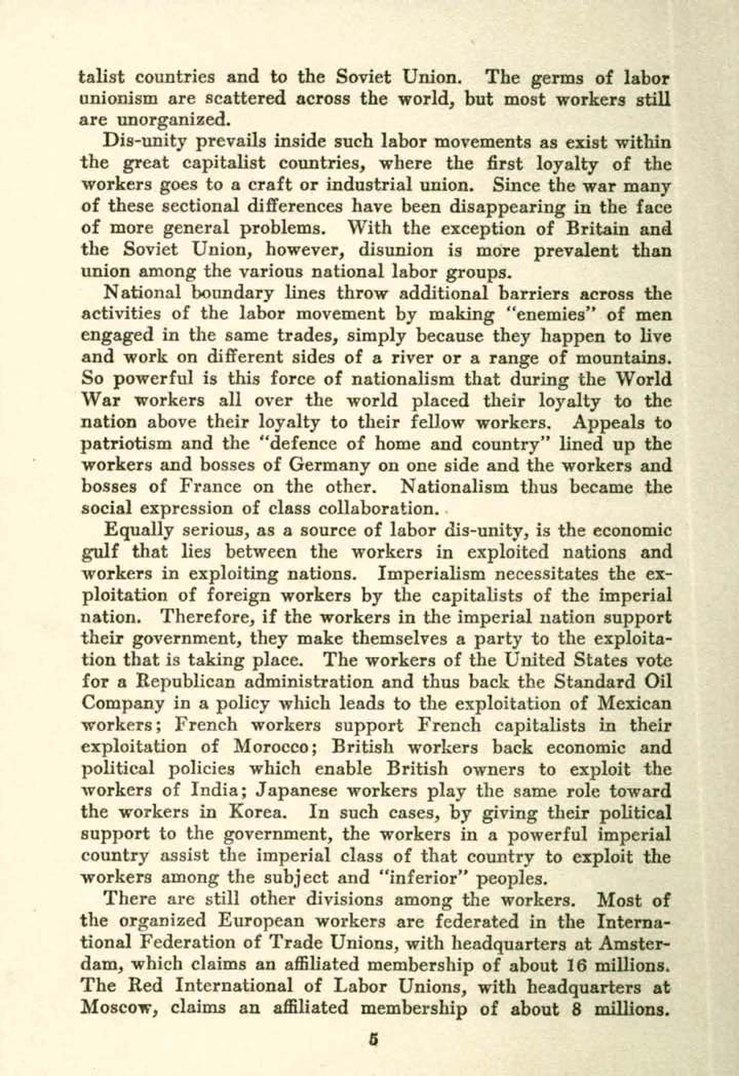talist countries and to the Soviet Union. The germs of labor unionism are scattered across the world, but most workers still are unorganized.
Dis-unity prevails inside such labor movements as exist within the great capitalist countries, where the first loyalty of the workers goes to a craft or industrial union. Since the war many of these sectional differences have been disappearing in the face of more general problems. With the exception of Britain and the Soviet Union, however, disunion is more prevalent than union among the various national labor groups.
National boundary lines throw additional barriers across the activities of the labor movement by making "enemies" of men engaged in the same trades, simply because they happen to live and work on different sides of a river or a range of mountains. So powerful is this force of nationalism that during the World War workers all over the world placed their loyalty to the nation above their loyalty to their fellow workers. Appeals to patriotism and the "defence of home and country" lined up the workers and bosses of Germany on one side and the workers and bosses of France on the other. Nationalism thus became the social expression of class collaboration.
Equally serious, as a source of labor dis-unity, is the economic gulf that lies between the workers in exploited nations and workers in exploiting nations. Imperialism necessitates the exploitation of foreign workers by the capitalists of the imperial nation. Therefore, if the workers in the imperial nation support their government, they make themselves a party to the exploitation that is taking place. The workers of the United States vote for a Republican administration and thus back the Standard Oil Company in a policy which leads to the exploitation of Mexican workers; French workers support French capitalists in their exploitation of Morocco; British workers back economic and political policies which enable British owners to exploit the workers of India; Japanese workers play the same role toward the workers in Korea. In such cases, by giving their political support to the government, the workers in a powerful imperial country assist the imperial class of that country to exploit the workers among the subject and "inferior" peoples.
There are still other divisions among the workers. Most of the organized European workers are federated in the International Federation of Trade Unions, with headquarters at Amsterdam, which claims an affiliated membership of about 16 millions. The Red International of Labor Unions, with headquarters at Moscow, claims an affiliated membership of about 8 millions.
5
